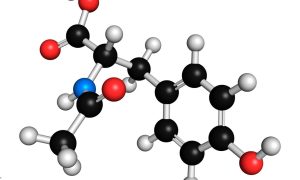Heart problems rarely start with dramatic moments. Most people expect a sharp pain or a sudden collapse, but the early signs can feel strange, small, or even unimportant. They show up quietly, blend into busy days. They get mistaken for stress, age, or simple exhaustion. The truth is simple. Your heart often tries to warn you long before any major problem appears. These early clues may sound harmless, but they are far from meaningless. Some feel vague. Others feel confused. A few feel like nothing more than a “weird day.” Still, they matter. And understanding them can make a real difference. The sections below explain 10 underrated signs your heart health is in imminent danger, using clear language and a tone that feels like a real conversation, not a medical lecture. Let’s start with a symptom most people shrug off without a second thought.
Persistent Fatigue
Introducing Persistent Fatigue

Real fatigue feels different from ordinary tiredness. You know the usual kind. A long day drains you. A poor night’s sleep slows you down. That type comes and goes. Heart-related fatigue stays. It lingers even after rest. It can appear first thing in the morning. And it doesn’t match your activity level.
People often describe it as heaviness. The body feels slower, almost resistant. You might notice that simple tasks demand more effort. Carrying groceries feels like a chore. Walking across a parking lot feels harder than it should.
This fatigue happens because the heart struggles to deliver enough oxygenated blood. When that balance drops, the body reacts by cutting energy to everyday activities. You may not feel pain. You may not feel sick. Just tired. Always tired.
Many blame stress or age. That explanation feels convenient. But persistent fatigue without a clear reason deserves attention. It’s one of the heart’s quiet alarms.
Swelling in Ankles or Feet
Introducing Swelling in Ankles or Feet
Swollen ankles are easy to dismiss. Maybe you stood too long. Maybe your shoes were tight. That’s what most people think. But swelling that appears often, especially in the evening, can signal trouble.
The heart’s job is to circulate blood upward through the legs. When the pump weakens, blood moves slower. Fluid begins to settle in the lower limbs. Ankles puff up. Feet feel tight. You might leave deeper marks in your socks.
The swelling may look mild at first. It might go down overnight, only to return the next afternoon. People tend to ignore it because it doesn’t hurt. Yet the heart notices. Swelling tells a story about circulation.
If this happens regularly, it’s worth getting checked. The body rarely sends fluid to the feet without a reason.
Shortness of Breath During Mild Activity
Introducing Shortness of Breath
Shortness of breath signals imbalance immediately. The strange part is how quickly it appears during mild activity. You may notice it while carrying laundry. You may feel it while walking from your car to the door. It doesn’t match the effort you’re putting in.
The heart and lungs work as a team. When one struggles, the other tries to compensate. If the heart has difficulty pushing blood forward, your breathing speeds up to gather more oxygen. Tasks that should be easy suddenly feel harder.
Some people also notice difficulty breathing when lying down. They may stack extra pillows without thinking much about it. That adjustment becomes routine. But it also becomes a clue.
Breathing changes are worth paying attention to. Especially when they appear out of nowhere.
Dizziness or Lightheadedness
Introducing Dizziness or Lightheadedness
Dizziness can feel like the floor shifted. It can feel like your vision fuzzed for a second. These brief spells make many people pause. But they often go unreported.
The reason? They come and go quickly. You stand up. Your head swims. It fades. You continue with your day.
But repeated dizziness can mean the heart isn’t sending enough oxygen to the brain. This happens when blood pressure drops or when heart rhythm changes. You might feel unsteady for just a moment, yet the body is giving you a signal.
Take note when it happens. Patterns carry meaning.
Irregular Heartbeat
Introducing an Irregular Heartbeat
An irregular heartbeat can feel like a flutter, a skip, or a thump. Sometimes it feels like someone tapped your chest from the inside. Other times it feels like your heart tripped for a second.
Not all irregular beats are dangerous. Stress, caffeine, or excitement can cause momentary changes. What matters is the repetition. A pattern. A feeling that the rhythm keeps slipping.
When the electrical signals in the heart misfire, the heartbeat changes pace. It may speed up during calm moments. It may slow down unexpectedly. This can leave you breathless or uneasy.
Ignoring rhythm changes can delay important detection. Better to ask a doctor than brush it away.
Jaw, Neck, or Back Pain
Introducing Jaw, Neck, or Back Pain
Many people don’t realize that heart discomfort can appear far away from the chest. Pain in the jaw, neck, or upper back can be confusing. It doesn’t seem connected. That’s why it’s often ignored.
Nerves around the heart share pathways with these areas. When the heart struggles, the brain sometimes misreads the signal. Jaw tightness appears. Neck aches spread. Back pressure creeps across the shoulders.
You might assume you slept wrong. You might blame posture. The pain may come and go, especially during activity.
Heart-related pain rarely screams. It whispers through odd places. Recognizing that pattern helps catch problems early.
Nausea or Indigestion
Introducing Nausea or Indigestion
Stomach trouble feels common. So common that people barely think twice. But nausea or unexplained indigestion can appear during early heart issues.
The stomach reacts strongly to reduced blood flow. You may feel acid-like discomfort. You may feel queasy during minor activity. Some feel pressure under the ribs rather than in the traditional stomach area.
Food may not be the culprit at all. Yet many treat it like that. They take antacids, change meals. They wait for improvement.
When nausea appears with other heart-related symptoms, it becomes more serious. Paying attention to timing helps identify deeper patterns.
Cold Sweats
Introducing Cold Sweats
Cold sweats strike quickly. They make your skin clammy. They leave a sticky chill even in warm rooms. This reaction occurs when the body senses distress and shifts into alert mode.
The heart may be struggling during these moments. The nervous system responds instantly. Cold sweats can occur with nausea, dizziness, or chest discomfort. These combinations matter because they hint at circulatory stress.
They may appear while sitting still, may arrive at night. They may stop as fast as they start. But repetition is a red flag.
If cold sweats become common, treat them as a warning.
Sleep Disturbances
Introducing Sleep Disturbances
Poor sleep can come from stress or noise. But certain nighttime issues connect directly to heart function. Some people wake suddenly feeling short of breath. Others feel pressure in the chest or upper body.
The heart works harder during sleep than most people realize. When circulation slows, fluid can shift into the lungs. That change makes breathing harder. Many start sleeping upright without even noticing the pattern at first.
Restlessness becomes exhausting. Morning fatigue becomes stronger. And the cycle repeats.
These nighttime disruptions deserve medical attention, especially if they appear frequently.
Anxiety or Sense of Doom
Introducing Anxiety or Sense of Doom
Anxiety can come from work, family, or daily life. But a sudden, unexplained sense of fear can signal something physical rather than emotional.
The body sometimes detects internal changes before you consciously feel them. Heart strain can activate the nervous system, creating a sense that something is wrong. This fear feels different from regular stress. It feels sharper. More urgent.
Here’s one short personal memory that fits this idea. A relative once mentioned waking with a strange wave of dread. Nothing stressful happened. No argument. No bad news. Hours later, her doctor found her blood pressure dangerously high. Her body alerted her long before symptoms became obvious.
These feelings should never be ignored when they appear out of nowhere.
Conclusion
Your heart tries to communicate long before any major event. It uses fatigue, swelling, dizziness, and other subtle signs. These clues may feel small, but they carry meaning. Listening to them gives you a chance to protect your health before problems grow.
If any of these signs sound familiar, consider speaking with a healthcare provider. Early awareness can change outcomes. Your heart works nonstop. It deserves attention when it speaks, even if it whispers.
Also Read: Top 9 Benefits of NAC (N-Acetyl Cysteine)
FAQs
Not always, but they should never be ignored.
When symptoms repeat, worsen, or feel unusual for your body.
Yes. Many early symptoms appear in other parts of the body.
Healthy eating, movement, stress control, regular checkups, and listening to your body.




